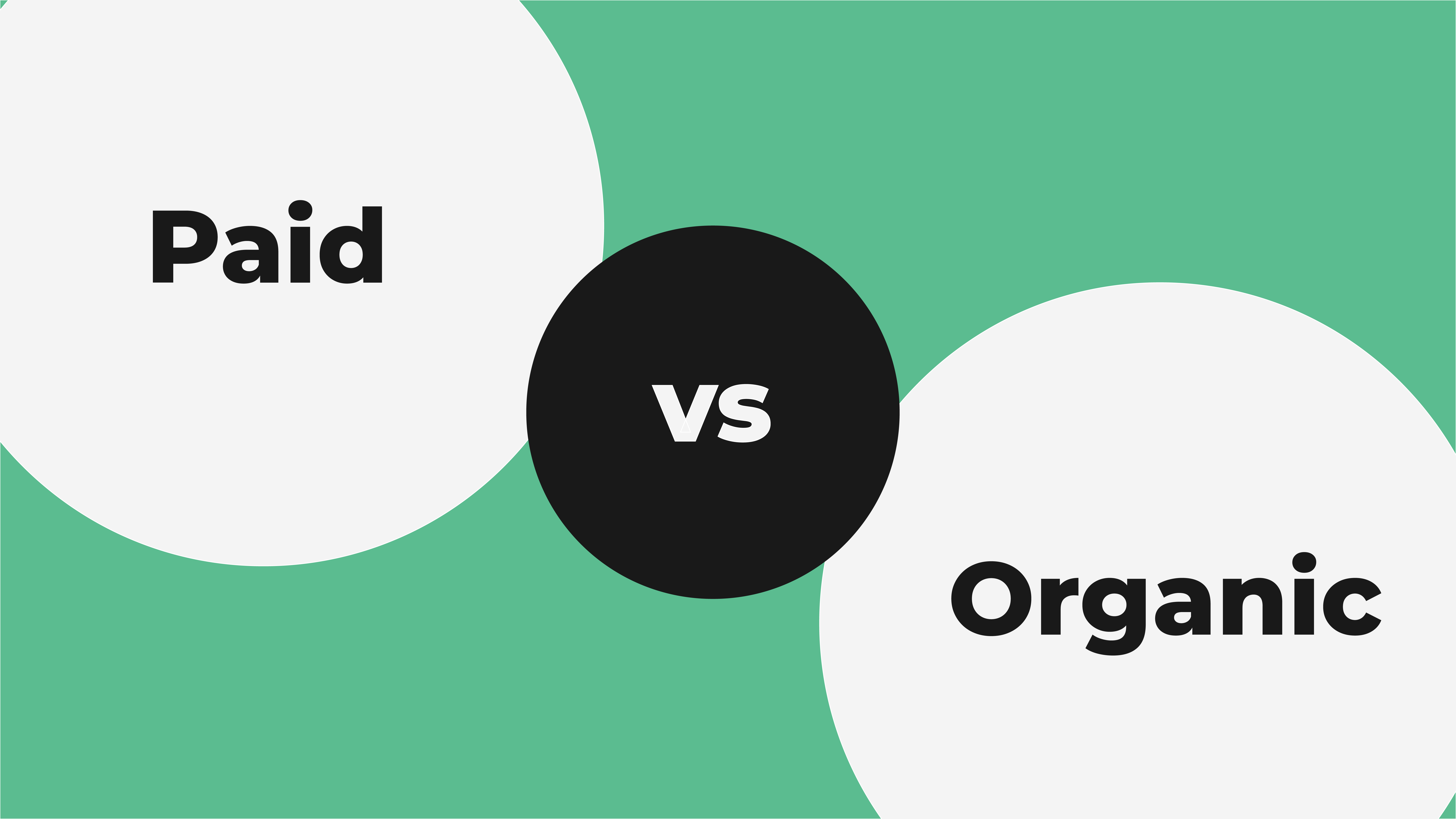Google Ads vs organic traffic
You might be familiar with two of the most popular ways to drive traffic to your website, and you may wonder which one is better for your business. While both have their advantages and disadvantages, in this article, you will be able to compare the pros and cons of each and decide which one is right for your business.
Google Ads
Google Ads, or pay-per-click (PPC) advertising, drives traffic to your website that seems faster and easier to reach your social media goals. In this article, we will start by mentioning the advantages of Google ads and continue with their disadvantages.
Advantages of Google Ads:
First and foremost, you can see results almost instantly with Google Ads. The moment your ads get approved, they will appear in search results, and you can start getting clicks and traffic immediately. But beware, something that looks simple is more complex than it sounds.
Secondly, Google Ads allows you to choose specific keywords and demographics as your target to receive the traffic you want, which is likely to convert into leads or sales.
Thirdly, Google Ads provides detailed analytics that allows you to measure the success of your campaigns. This includes clicks, conversions, and return on investment, also known as ROI.
These are some of Google Ads' advantages but what about its disadvantages? Next, you will find a list of the disadvantages of using
Google Ads.
Disadvantages of Google Ads:
Everything has a cost, and so does Google Ads. It can be expensive, especially for highly competitive keywords. That is why you should be careful, so you only spend a little money that doesn't give you a good return on investment.
Just like other things, Google Ads requires expertise. Using Google Ads can be complicated, and you need a lot of knowledge and expertise to create effective campaigns. You need to gain experience with PPC advertising to get good results.
When you choose your specific keywords and demographics as your target to receive the traffic, Google Ads will only reach people actively searching for those particular keywords. This means you will lose the rest of the potential customers who are not actively searching for your products or services.
Though Google Ads is a faster and more effective way of driving traffic to your website, it might be over your budget to constantly use it. The moment you stop the ads, the traffic jams at once. So if you are looking for a cheaper way, organic traffic might be the best choice for your business. But what are its advantages and disadvantages?
Organic Traffic
Organic traffic involves the traffic you receive on your website from search engines without spending a dime on advertising. Just like Google Ads, it has its own advantages and disadvantages. Now we will take a good look at what they are.
Advantages of Organic Traffic
Organic traffic can be a good choice for small businesses with limited budgets. It is free, you don't pay for clicks or impressions, and it can benefit you.
Most people choose to trust organic search results more than paid ads. But why is this? Your website ranks high in results, and people are likelier to click on your website and consider your business. Whereas ads are everywhere, and even though some people have achieved the skill of totally ignoring them, they don't truly trust them because of the scams.
Unlike Google Ads, when you stop paying for the ads, it stops driving traffic to your website; with organic traffic, you will have long-term benefits. This means that your high-quality content and website optimisation for search engines can drive traffic to your website for months or even years.
A good thing sometimes has its wrong side. So does organic traffic with its disadvantages.

Disadvantages of Organic Traffic
One of the disadvantages is the time it takes to be built. It can take months or even years to provide results, especially if you are new. Organic traffic can hardly help your new website take its baby steps towards success.
Just like Google Ads, organic traffic requires expertise. You need knowledge and expertise to optimise your website for search engines. If you aren't experienced with search engine optimisation (SEO), reaching the desired results might take a lot of work.
Unlike Google Ads, which allows you to target specific keywords, organic traffic is unpredictable. People might use different keywords in which you have no control. This will forcibly make you lose potential customers.
Organic Traffic takes longer, and it requires hard work, but in the end, the results will last longer. Furthermore, you don't need to open your wallet for it. It is free and effective.
Both Google Ads and organic traffic have advantages and disadvantages; your choice depends on your goals, budget and expertise. Google Ads will give you quick results, but you need the budget for advertising. And if you have a limited budget but are willing to invest your time and effort in SEO, organic traffic is the better option. Whatever option you decide to take with you after reading this article, remember that hard work will always pay up. Yes, both strategies require ongoing effort and optimisation to be effective, but you can succeed with courage and hard work.
